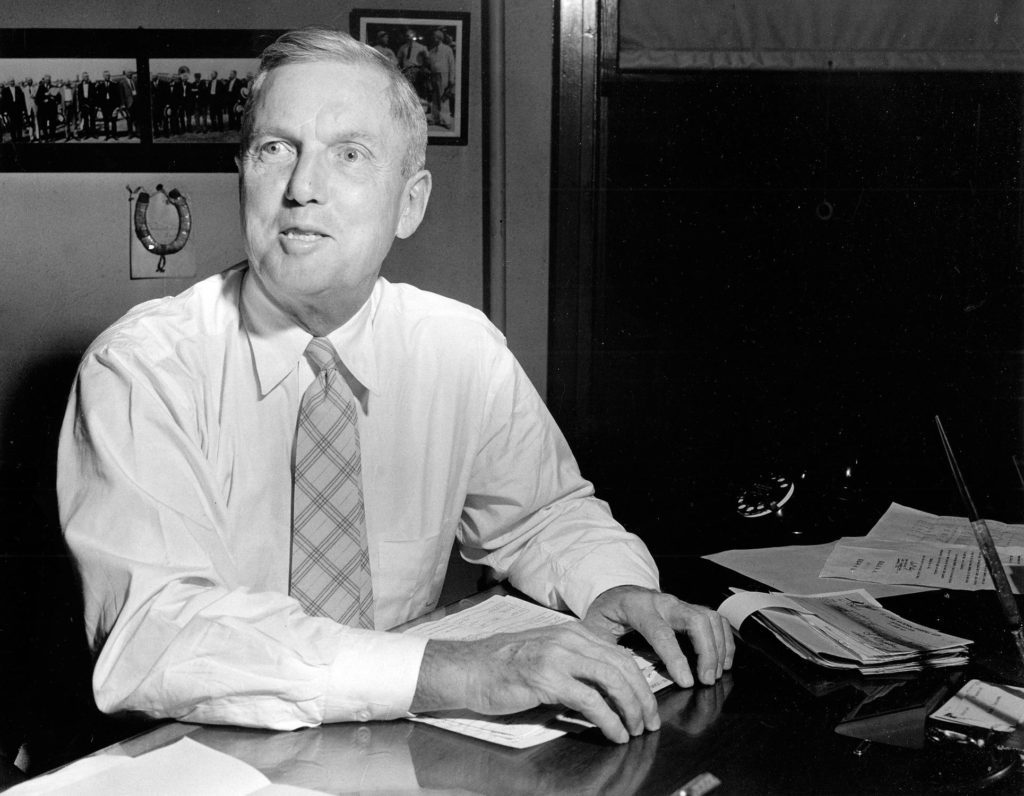Another Sunday, another edition of “The Cooperstown case”!
This week, we’ll be looking at a man who was just recently inducted into the Cardinals Hall of Fame.
Let’s take a look at the case for the late Sam Breadon.
Born on July 26, 1876, in New York City, Breadon moved to St. Louis in 1902 and was actually a popcorn vendor during the 1904 World’s Fair. He ran a successful automobile business during his early years in St. Louis, and soon grew affection for the baseball team in the city… the St. Louis Cardinals.
Then, in 1917, Breadon paid $2,000 to become an investor in the Cardinals. Three years later, he rose to principal owner and team president.
Things only went up for the Cardinals franchise.
The St. Louis Cardinals won nine National League pennants and six World Series titles while Breadon was their principal owner from 1920-1947. Let’s put that into perspective: the National League won eight World Series titles between 1926-46. Out of those eight, the Cardinals won six of those. (The other two were the 1933 Giants and 1940 Reds.)
In his obituary in May of 1949, The Sporting News wrote of Breadon: “His name was synonymous with baseball success.”
During his early years with the team, Branch Rickey put the finishing touches on his new idea for a successful baseball franchise… the farm system. It worked so well, the rest of baseball eventually copied the formula set forth by the Hall of Famer. Rickey was still a big part of the organization once Breadon entered the picture, ans had promoted star player Rogers Hornsby to player-manager.
“It gave us our first pennant, it made our players pennant-conscious and it enabled Rickey to move into the front office, where he had a much better opportunity to develop and exercise his talents,” Breadon said to The Sporting News on his decision making at the time.
Another under-the-radar decision Breadon made regarding players was preventing Rickey from trading Cardinal great Marty Marion to the Cubs in 1939.
According to The Sporting News, Rickey thought Bobby Sturgeon was the better prospect and wanted to offer Marion to the Cubs for cash.
“No,” Breadon responded, “if we sell one of them, we’ll sell Sturgeon.”
It was his loyalty to longtime players that made him such a fixture in the city.
As for their field, the Cardinals had been playing their home games at dilapidated Robison Field. Breadon convinced Phil Ball, owner of the St. Louis Browns of the American League, to take in the Cardinals as a tenant at Sportsman’s Park, a deal that lasted until 1966.
“It was the most important move I ever made on the Cardinals,” Breadon told The Sporting News. “… It gave us money to clean up our debts, and something more to work with. Without it, we never could have purchased the minor-league clubs, which were the beginning of our farm system.”
So, with all of these contributions, what is it that prevents a pioneer like Breadon from being in Cooperstown?
Does he have a good case? Feel free to discuss, and be sure to tune in next week for another edition of “The Cooperstown case”!


